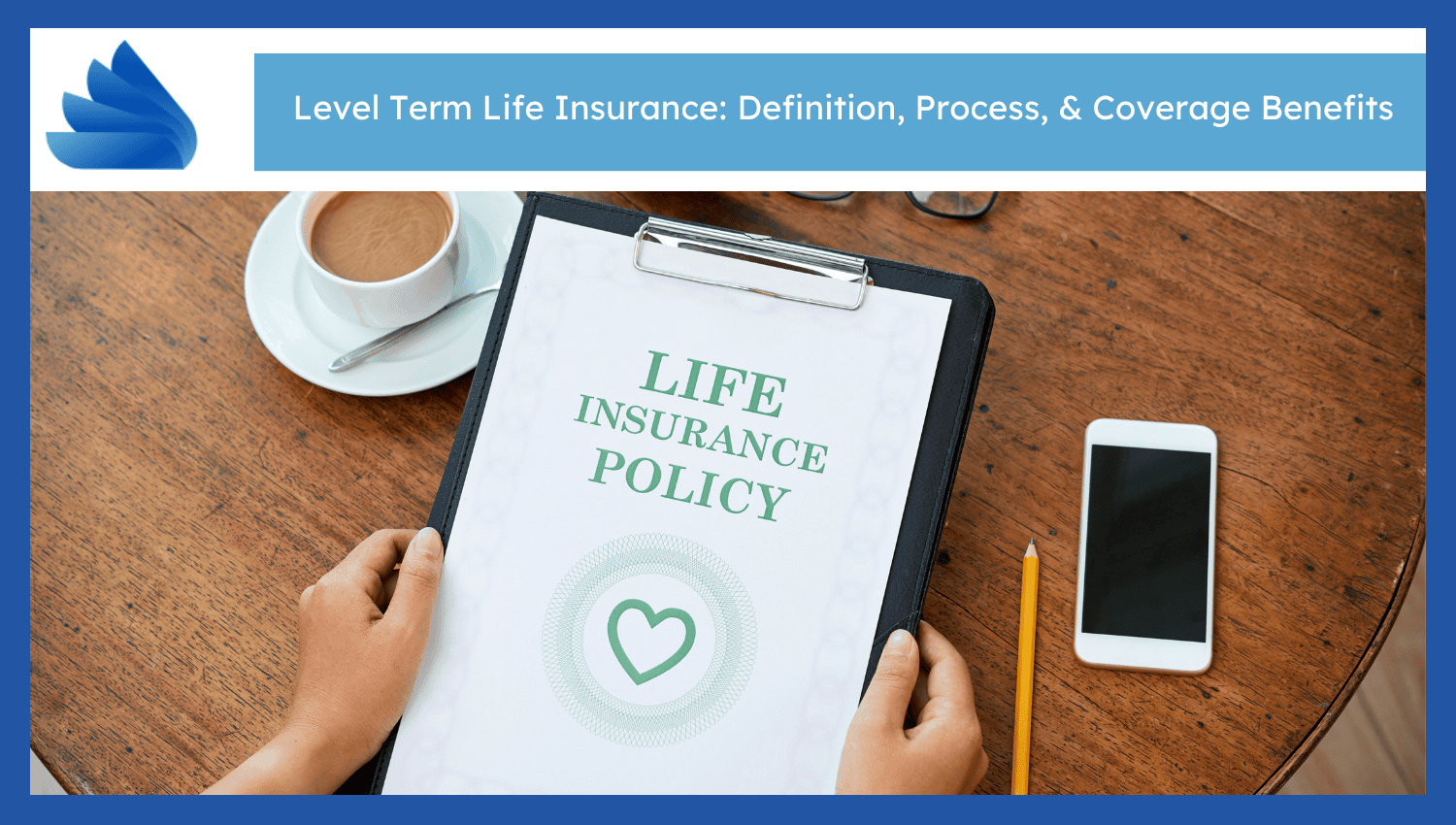
Level Term Life Insurance: Definition, Process, & Coverage Benefits
Level term life insurance is a form of life insurance that has a fixed duration, e.g., 10, 20, or 30 years, where the premium and the payment of the death benefit are fixed throughout the duration of the policy. This means policyholders always know how much their payments are and when they’re due, making it easier to manage their budget. It also has the advantage of providing a certain amount to the family in case something happens to the policy owners, making plans in the future a little simpler.
Level term life insurance suits one who is purchasing life insurance for the first time. LIMRA 2023 Insurance Barometer Study shows that one-third (30 percent) of adults in the U.S. have yet to purchase life insurance, although they still need it.
How Does Level Term Life Insurance Work?
Level term life insurance is a fixed term insurance, usually 10, 20, or 30 years. The insured decides the period of coverage and the amount to be paid as the death benefit when they buy the policy. Two primary components of level term life insurance are the death benefit and premiums. Death benefit is the total money that is awarded to beneficiaries upon the demise of the policyholder, and the premiums are regular sums of money to be paid to ensure the policy remains active. In level term life insurance, the amount of the death benefit and the premium remain fixed during the entire term of the insurance, providing steady, predictable costs and coverage billed upfront and paid over time. Further, if the insured passes away during the insurance period, beneficiaries are paid the death benefit in full. If the term expires when the insured is still living, the policy is canceled without any benefit. Level term policy is not a cash-value and savings element, in contrast to universal or whole-life policies. Its primary purpose is protection, not investment. The renewal after the term is possible; however, premiums tend to increase due to the aging process and other risk factors. Level term is ideal for those who require low-cost, simple insurance. This suits short-term financial needs, such as mortgages or dependent care. Let's say you need the cover amount to be USD 150,000, with a period of 20 years. You decide to take a policy with monthly charges of USD 15. Each month for the following 20 years, you pay USD 15 to the insurer. If you die (or suffer from a terminal illness) during the 20-year time frame, your insurance company is bound to pay the beneficiaries the sum of USD 150,000. If the 20 years expire but you're alive, your insurance policy expires and you won't have to pay any further charges. (However, you will not receive any refund.)What are the Benefits of Level Term Life Insurance?
Level term life insurance has short-term, straightforward protection at affordable and stable rates and amounts. The major benefits are as follows:- Fixed premiums make the payments steady and stable.
- Offers stable income to the beneficiaries.
- Covers mortgage and other liabilities during the coverage time.
- Supports education costs and other expenses of children.
- Easy to comprehend, having no cash value or risk of investments.
- Gives larger coverage values at reduced prices compared to whole life insurance.
- Terms that are flexible enough to fit certain targets in finance.
- Not hard to qualify as permanent policies.
- Suitable for a short to medium-term financial protection requirement.
- No surprises-cover and expenses rise throughout the term.
Is Level Term Life Insurance Right for You?
You can consider it in case your needs are as follows:- Ideal for families with young children needing financial protection during their upbringing years.
- Fitting homeowners who need coverage tailored to the terms of their mortgage or long-term debt.
- Ideal for individuals in need of temporary but substantial coverage without incurring permanent policy premiums.
- Not suited for estate or lifelong financial planning needs as coverage ends upon expiration.
What Happens After the Term Ends?
Here's what typically happens:- The policy expires automatically unless it is renewed or converted.
- Renewal is possible, but it typically results in hefty premium increases.
- Certain policies allow for the guarantee of renewal without requiring a need for a new underwriting.
- Most term insurance policies provide an option for conversion to permanent insurance.
- Conversion does not require a medical examination; however, it results in higher rates.
- Permanent conversion provides lifelong security, but it isn't as affordable in the long run.
- If no action is taken, the coverage is canceled and there is no payout payable.
- Proactive planning ensures that there are no gaps in coverage or unexpected expenses.
- Ideal for those who anticipate changing requirements towards the end of their period of policy.


